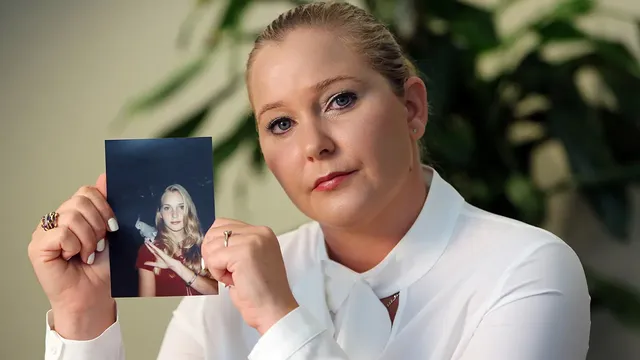
Virginia Giuffre dies by suicide after fighting against sexual abuse
2025-04-29 04:00- Virginia Giuffre died by suicide at her farm in Western Australia, confirmed by her family.
- She was a renowned advocate for victims of sexual abuse and played a crucial role in exposing the Epstein trafficking network.
- Her passing has sparked discussions about mental health and the overwhelming impact of trauma on abuse survivors.
Express your sentiment!
Insights
In Western Australia, Virginia Giuffre, a prominent advocate for victims of sexual abuse and a survivor of Jeffrey Epstein’s sex trafficking ring, tragically died by suicide at the age of 41. Just weeks before her death, she had been living with her husband and children in Neergabby, having moved there following Epstein's arrest in 2019. Giuffre had been vocal about her experiences, alleging that she was trafficked by Epstein and Ghislaine Maxwell to several influential men, including Prince Andrew, when she was a minor. Her fight for justice included filing a lawsuit against Prince Andrew, which was settled out of court in 2022, yet he maintained his denial of her claims. Giuffre’s passing has deeply affected many of her supporters, who viewed her as a beacon of hope and strength for other survivors. Her family released a statement confirming that she had been a lifelong victim of sexual abuse and sex trafficking, and they expressed their heartbreak over her loss. Although Giuffre suffered severe physical injuries in a recent car accident, it appears that the mental toll from her past trauma was devastating. Friends and family noted that Giuffre was a fierce warrior against sexual abuse and was an inspiration to many who were also victims. Moreover, her efforts greatly contributed to the attention surrounding Epstein's extensive abuse network, leading to the eventual conviction of Maxwell on charges of sex trafficking. Giuffre's life, marked by trauma from an early age, fueled her determination to advocate for others and seek justice for herself and countless other survivors. Her story highlights the far-reaching consequences of sexual abuse, not only on the victims but also on their families and communities. As news of her death circulated, it prompted renewed discussions about mental health, the profound effects of abuse, and the urgent need for support systems for survivors. People who knew Giuffre reflected on her legacy not only as a victim but as a transformative figure in the fight against sexual abuse and trafficking, emphasizing her role in encouraging other survivors to speak out and seek help.
Contexts
Virginia Giuffre's advocacy has significantly impacted the global dialogue surrounding sexual abuse, trafficking, and the broader context of power dynamics in relationships. As a prominent figure in the ongoing discussions related to high-profile cases of sexual exploitation, Giuffre has brought attention to her own experiences as a victim of sex trafficking. Her advocacy work has prompted a critical examination of systemic issues within powerful institutions, including the legal system, and has encouraged victims to come forward with their stories, creating a more supportive environment for survivors. Giuffre’s personal narrative has transformed into a rallying point for advocates and activists, reflecting the need for greater accountability and legislative reforms aimed at protecting vulnerable individuals from exploitation. Moreover, Giuffre's actions have led to increased media coverage and public interest in sexual abuse cases, particularly those involving influential figures. By standing firm in her truth and pursuing legal action against individuals such as Jeffrey Epstein and Prince Andrew, she has inspired other victims to seek justice and has fostered a sense of empowerment among those living in silence. The cultural impact of her advocacy extends beyond individual cases, encouraging society to reevaluate attitudes towards consent, stigma, and victim-blaming. As the #MeToo movement gained momentum, Giuffre's story became emblematic of the complexities and challenges faced by survivors in their quest for justice, further positioning her as a key advocacy figure. Giuffre's advocacy also emphasizes the importance of comprehensive educational initiatives aimed at prevention and awareness. By leveraging her experience and platform, she has engaged in conversations about the necessity of teaching consent and healthy relationships from a young age. This preventative approach addresses the root causes of trafficking and sexual abuse, providing tools for young people to recognize and resist exploitative situations. Giuffre's influence extends into policy discussions, where her testimony and activism inform lawmakers about the urgent need for legislation that protects victims and punishes offenders effectively. In conclusion, Virginia Giuffre's advocacy has catalyzed significant discourse around sexual abuse and trafficking, highlighting systemic flaws that perpetuate these issues. Her role as both a survivor and advocate has shifted societal expectations regarding accountability and support for victims. As her journey continues to unfold, it remains clear that Giuffre will play a crucial role in shaping policies and public perception, with the potential to foster lasting change in how society confronts and addresses sexual violence.